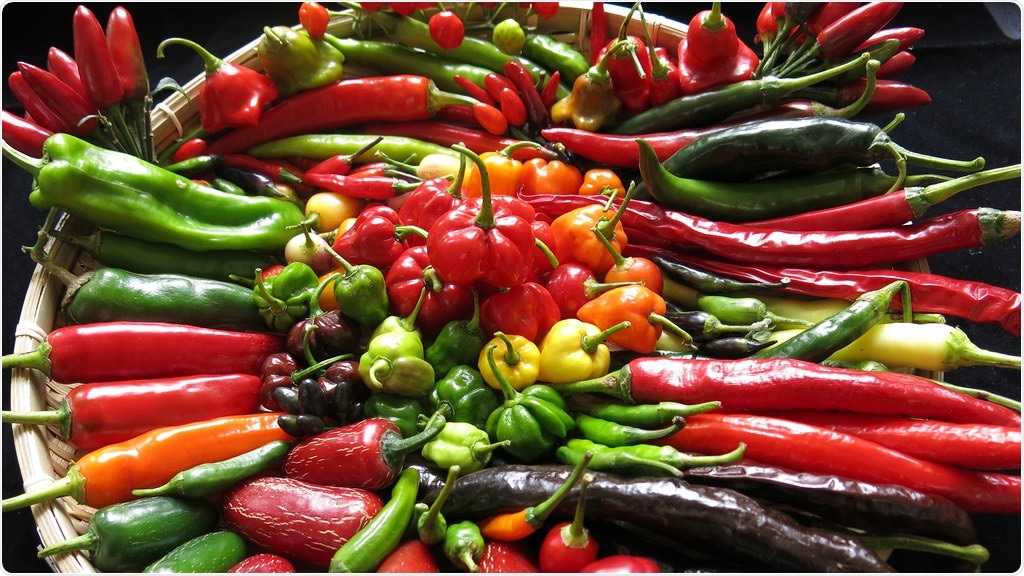Researchers exploring the genetics of chili pepper species have identified an entire host of new hybrids of chilies hybrids that can be cultivated by crossing domesticated peppers with their wild cousins. This will enable plant breeders to produce new varieties that have more improved disease resistance and can boost productivity.

There are 35 species of pepper in the Capsicum family, including five domesticated species. Image Credit: World Vegetable Center.
Although chilies have a huge global culinary appeal, they are comparatively hard to grow because they are sensitive to growing conditions and are prone to diseases.
The Capsicum family contains 35 species of pepper, including five domesticated species. The most popular among the species is C. annuum, which contains many varieties with extensively differing tastes and shapes, including jalapeños, bell peppers, cayenne peppers, and New Mexico chilies.
A research team from the World Vegetable Center based in Taiwan studied the genetic association between 38 samples of 15 species of domesticated and wild peppers obtained from different places across the world.
The researchers’ findings, published in the PLOS ONE journal, demonstrated that breeding compatibility between species was not essentially associated with how closely they were related to one another. The team also found that four species were incorrectly characterized.
Catherine Parry, the lead author of the study, obtained the data during a six-month work placement at the World Vegetable Center as part of her undergraduate degree in Biology at the University of Bath.
The main differences between peppers that are grown for culinary purposes and their wild counterparts are that the wild species have much smaller fruits and leaves. However, we have large gaps in our understanding of the wild relatives of the Capsicum family.”
Catherine Parry, Study Lead Author, University of Bath
Parry continued, “It was previously thought that only a narrow range of species could be successfully hybridized for cultivation, but our research has shown that there is a much wider potential number of varieties that could be grown.”
Many of the wild species have better disease resistance and so our findings could be valuable for identifying candidates for future breeding programmes, potentially increasing productivity for food producers and maybe even creating some new flavours to explore too!”
Catherine Parry, Study Lead Author, University of Bath
The Taiwan-based World Vegetable Center holds the biggest collection of Capsicum genetic material worldwide.
Unlike other crops in Solanaceae, the use of wild relatives in pepper/chilli/chile pepper breeding programs is extremely limited. In fact, the phylogeny of Capsicum is still not completely resolved.”
Dr Derek Barchenger, Study Second Author, World Vegetable Center
Dr. Barchenger continued, “There are many important abiotic and biotic stresses to which we lack sources of resistance and tolerance. Therefore, we are interested in exploring the wild relatives of Capsicum to identity resistant sources to incorporate into our breeding program.”
“This study provides a critical first step in the utilization of Capsicum wild relatives in breeding by expanding our understanding of genetic and phenotypic similarities and crossability among wild and domesticated species,” Dr. Barchenger concluded.
Source:
Journal reference:
Parry. C., et al. (2020) Reproductive Compatibility in Capsicum is not Reflected in Genetic or Phenotypic Similarity Between Species Complexes. PLOS ONE. doi.org/10.1101/2020.11.30.403691.